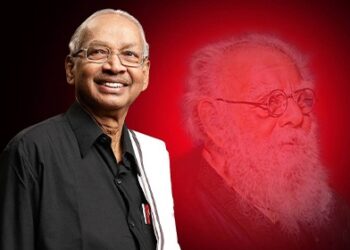Taxation is a vital function of any government, mandated by the people’s electorate. The function is to carry out the need and requirements of people as promised by the elected government. This is the minimum feature of a democratically elected government. In our country, the major elected governments are at Union and State level apart from the local bodies, a miniature form of the elected government limited to its jurisdiction. All these governance – layers are endowed with authority and the responsibility to carry out the task for the well-being and welfare of its people.
Cutting down the authority of anyone layer on the other is not desirable and against the democratic principles. The spirit of getting elected by the people must be mutually recognised by all the layers of governance.
During the past one decade, since the BJP led alliance was elected to rule the country, the democratic norms are getting eroded, more so by cutting down the fiscal right, the States are empowered on taxation front. As a matter of levy of taxes by the Union government, it has got an edge over the States. The States are vested with the major responsibility of redressing the grievances as well as the requirements of the people directly. In fact more fiscal power has to be assigned to State governments. The Finance Commission with a tenure of 5 years will decide the share of States on the taxes collected by the Union government.
The share itself has been insufficient to meet the requirements of discharging the responsibilities by the States.
Adding further to the deficit to the treasury of States, many of the commercial taxes levied by State governments were combined as Goods and Sales Tax (GST) for its exclusive collection by the Union government from 1st July 2017. The States were deprived of their authority to levy the erstwhile commercial taxes. The compensation to the States was given for a particular period after which the States were denied such a dispensation.
Now, invariably all the States are in critical stage of fiscal position. However the elected State governments have to discharge duties for the respective people. There should not be any discrimination between the Union and the State governments in respect of delivering goods to their welfare. There cannot be disparities in the fiscal power between the Union and the States. If so, due compensation must be provided. Increased share from the revenue pooled by the Union government must be extended to the States. Instead, stringent pre-conditions are laid by the BJP led government to release the regular share of revenue to the states.
For instance, the fiscal relations between the Union government and the Tamil Nadu State government has reached a peak, critical level. The subject, ‘education’ is scheduled in the Concurrent List of the Indian Constitution. The exercise of the right on education has not been carried out properly by the BJP led Union government.
The Union government has formulated National Education Policy and started to implement it. The States are also empowered to formulate their own Education Policy. Accordingly the State of Tamil Nadu carved out its own policy of the two language formula (Tamil and English) that has been under implementation since 1967. The Union government has formulated a new PM Shri Scheme, wherein Model Schools will be formed which would reflect the National Education Policy (NEP). Many of the performance parameters proposed for NEP have already been achieved in Tamil Nadu through the progressive educational scheme implemented for the past 5 decades.
For instance, the Gross Enrolment Ratio i.e. students joining the Higher educational institutions from their school final has been fixed at 50 per cent to be achieved under NEP. But, Tamil Nadu had already achieved more than 50 per cent (52 per cent) 4 years back itself. Besides, equal syllabus scheme (Sama Seer Kalvi) is under implementation as the State Level Policy. So, the State of Tamil Nadu is reluctant to accept PM Shri Scheme which discriminate the students and offer model school as elegant.
For the release of revenue for the Tamil Nadu’s Scheme for School Education, the BJP led government has laid a condition to accept PM Shri Scheme. Is the precondition in order? For want of the share, in Tamil Nadu, many of the educational schemes are pending. The salary payments for the school teachers poses a critical situation for the next month.
The governance strategy of the BJP led government is this:
“You should not levy tax. In case you expect the share, you have to accept the scheme formulated by us, whatever may be your educational scheme at State level!” Curtailing the functioning of the State governments by insisting on the unsuitable scheme is highly condemnable. Can the Union government negate, restrict or apply financial constraints for the State Government, which is also elected by the people?









